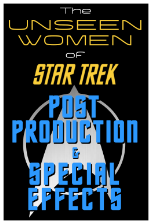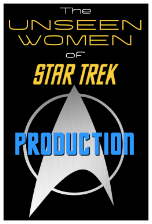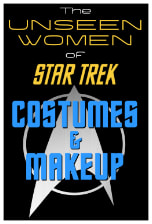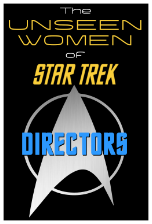|
When seeking inspiration, we tend to focus on the accomplishments of remarkable people: Einstein's groundbreaking theories, Dr. Seuss's iconic books, or the shoulder-high stack of medals that America's most decorated gymnast, Simone Biles, probably has sitting in a closet somewhere. We think of the incredible things these people have done and think, "If they can do it, so can I!"
Or do we? Imagine a scientist. Did you picture an antisocial male genius in a lab coat? Most people do, and at least one study found that if all you ever hear about are scientists' successes, Dr. Scatterbrained is with you to stay. The study tested how students reacted to learning either only about scientists' accomplishments, or the struggles that led to those accomplishments. In the success-only group, the scientist stereotype was reinforced in the minds of students, while the perceptions of those in the struggles group shifted toward a more realistic image (Hong & Lin-Siegler, 2011). This is by no means limited to scientists. It's all too easy to dismiss the remarkable successes of athletes, artists, or activists as symptoms of unique abilities, genius, or luck. When we do that though, we sever our connection to these people by making them unrelatable and, even worse, irreplicable. Anyone who's poked around on this site knows that when my daughter was three years old, I started seeking out picture book biographies of accomplished women to read to her. My goal was (and still is) to cultivate within her the same persistence and courage that these women possessed. The more I read, however, the more I realized that the most inspiring parts of these women's stories weren't their accomplishments, but their resilience in the face of failure: - For ten years in a row, Peggy Whitson applied to the NASA astronaut program. For ten years in a row, they said no. Attempt number eleven finally landed Peggy a yes, setting her on the path to becoming the first woman to command the International Space Station. - In 1954, Althea Gibson was dubbed by Jet magazine as The Biggest Disappointment in Tennis. Three years later, she became the first Black athlete to win singles at Wimbledon. - When she was a child, nineteenth century mathematician Sophie Germain's parents forbid her from studying (It will damage her delicate female constitution!). They even kept her fireplace unlit on icy winter nights to stop her from getting out of bed to practice. Sophie snuck in candles and wrapped herself in a blanket, laying the foundations that eventually enabled her to develop the modern theory of elasticity. These stories--of ordinary people plodding, squeezing, and prying their way towards the extraordinary--are where the true inspiration lies. Knowing these stories makes our own failures easier to bear, offering hope in the face of seemingly relentless struggle. As for Albert Einstein? Not only was he called "the dopey one" for the first three years of his life, but those groundbreaking theories of his were dismissed and ignored for years. Dr. Seuss? He brought the manuscript for his first book to 27 publishers, and they all said no. To his face. Simone Biles isn't immune either. Just a few weeks ago, this gymnastics powerhouse made history--yet again--as the first woman to land the extremely challenging Yurchenko double pike vault move in competition. What else did she do that day? She also messed up the final landing in her floor routine, and fell off the uneven bars. Then she got back up. If they can do it, so can I.  Here we are! The final installment of the Unseen Women of Star Trek series. It has been such a treat learning about all of these incredible women who devoted their time and talent to a universe that is so dear to my heart. Unearthing their stories has been hugely rewarding, and while I've been disappointed by all of the lingering oversights, I'm encouraged by the fact that this franchise is still very much alive and continuing to make history. I hope you've found this all as fascinating and inspiring as I have. So without further ado, here we go! Well, maybe a little more ado... If you're just stumbling into this series now, feel free to start at the beginning with Trek's women writers. Or be a non-conformist and skip around, checking out producers, directors, music & sound, art & design, costumes & makeup, and production in whatever order your anarchist heart desires! P.P.S. Most of the info below was drawn from imdb.com, memory-alpha.fandom.com, and linked interviews. While I've done my best to be thorough, I admit my fallibility and welcome corrections. The vast majority of women credited with working on Trek have little to no information available about them, and photos are even more scarce. Also, shorts, video games, books, comics, and fan-made media are not included.  Wait a tic. Don't special effects happen in post-production? Why the title segregation? Excellent question! You are a detail-oriented individual and I applaud your commitment to eliminating redundancy in all its forms! However, apparently you are also, like me, an entertainment industry layman, with a negligible understanding of how film and television are made. No worries. Here's the skinny: as the name implies, post-production encompasses everything that happens after filming, most of which falls into one of three buckets -- editing, sound, and effects. While there are a slew of different types of editors, the concept is pretty self-explanatory. Sound was covered in a previous post, so that brings us back to the original topic: effects. If someone like you or I were to talk about special effects, we'd probably talk about all the spaceship explosiony, CGI alieny kind of stuff -- and we'd be totally wrong. All of that stuff is actually referred to in the biz as visual effects, and it happens in post-production. Special effects, on the other hand, usually occur during filming and consist of either mechanical effects (like pyrotechnics) or optical effects (like narrowing the camera lens to make it appear like you're looking through a telescope). Special makeup, like prosthetics and aging, is also considered a special effect, but that too was already covered in a previous post. Long story medium long, that's why today's post is about women who have made their mark in Star Trek's post-production and special effects. Enjoy! P.S. If you're just stumbling into this series now, feel free to start at the beginning with Trek's women writers. Or be a non-conformist and skip around, checking out producers, music & sound, directors, art & design, costumes & makeup, and production in whatever order your anarchist heart desires! P.P.S. Most of the info below was drawn from imdb.com, memory-alpha.fandom.com, and linked interviews. While I've done my best to be thorough, I admit my fallibility and welcome corrections. The vast majority of women credited with working on Trek have little to no information available about them, and photos are even more scarce. Also, shorts, video games, books, comics, and fan-made media are not included.  This series has already covered most of the jobs related to film and television production, including all of the glamorous careers like writing, producing, directing, music & sound, art & design, and costume & makeup. What could possibly be left to talk about? A lot, surprisingly! There's a huge team of people performing the lesser known yet crucial tasks that keep a show organized, as well as an army of technical specialists that maintain and employ the vast amounts of equipment needed to bring a show from inception to completion. Happily there are several women who have performed these roles for Star Trek, and you're about to meet some of them! P.S. Most of the info below was drawn from imdb.com, memory-alpha.fandom.com, and linked interviews. While I've done my best to be thorough, I admit my fallibility and welcome corrections. The vast majority of women credited with working on Trek have little to no information available about them, and photos are even more scarce. Also, shorts, video games, books, comics, and fan-made media are not included.  Imagine Spock with regular old flat eyebrows. Or the Borg without their mechanical enhancements. BORING! Zany hairdos, futuristic outfits, and alien prosthetics play a huge part in making Star Trek both otherworldly and believable at the same time, and women have been at the forefront of this from the very beginning. In fact, the original series' costume and makeup departments were the only production departments (other than DC Fontana in the writers' room) that even employed women. Below are just a few who have made their mark in the costume and makeup departments. P.S. If you're just stumbling into this series now, feel free to start at the beginning with Trek's women writers. Or be a non-conformist and skip around, checking out producers, music & sound, directors, and art & design in whatever order your anarchist heart desires! P.P.S. Most of the info below was drawn from imdb.com, memory-alpha.fandom.com, and linked interviews. While I've done my best to be thorough, I admit my fallibility and welcome corrections. The vast majority of women credited with working on Trek have little to no information available about them, and photos are even more scarce. Also, shorts, video games, books, comics, and fan-made media are not included.  So far in this series we've met women who have written, produced, and directed for Star Trek, as well as those who have helped create its soundscape. Although I've been repeatedly disappointed by how poorly this franchise -- so progressive in its content -- has fared regarding female inclusion in its production, I've thoroughly enjoyed meeting those accomplished and dedicated women who have made a real impact on the Trek universe. Today we turn our attention to the show's "art and design," which, for our purposes, includes animation, set design & decoration, and anything that falls under the purview of the art department. Don't worry: costume, wardrobe, & makeup, and special effects have their own posts! P.S. Most of the info below was drawn from imdb.com, memory-alpha.fandom.com, and linked interviews. While I've done my best to be thorough, I admit my fallibility and welcome corrections. The vast majority of women credited with working on Trek have little to no information available about them, and photos are even more scarce. Also, shorts, video games, books, comics, and fan-made media are not included.  We all know that what we hear on screen is equally as important as what we see. The right music heightens the drama of a scene, sets viewer expectations, and can even become a cultural icon in its own right. At the same time, crisp, precise sound effects ground what we're seeing in reality, allowing us to suspend disbelief and feel like we're truly inhabiting a different world. Of course women have been making and composing music for millennia, but for some strange and totally unpindownable reason their contributions haven't been as valued as men's... weird, right? ;-) Obviously, this carries over into show business as well -- and as we've seen throughout this series, even our beloved Star Trek isn't immune. Believe it or not, there has NEVER, in more than 50 years of Star Trek, been a female lead composer for a full-length Trek movie or show! Despite their lack of inclusion and recognition, several women have helped shape the sounds of Star Trek -- and you're about to meet some of them! P.S. What? You haven't seen the first three posts about women writers, producers, and directors for Star Trek? Rectify! P.P.S. Most of the info below was drawn from imdb.com, memory-alpha.fandom.com, and linked interviews. While I've done my best to be thorough, I admit my fallibility and welcome corrections. The vast majority of women credited with working on Trek have little to no information available about them, and photos are even more scarce. Also, shorts, video games, books, comics, and fan-made media are not included.  Directors are among the top decision makers when it comes to what we see on screen, but this powerful position in the entertainment hierarchy has long been reserved for men. Unfortunately, Star Trek is no different. Out of 13 movies and more than 750 episodes, ZERO movies and only 41 episodes have been directed by women -- 18 by women of color. Ugh. While there may not be as many as we'd like, let's celebrate the relentless women who did manage to climb to the top of the artistic chain of command and bring their visions to the world of Star Trek. P.S. What? You haven't seen the first two posts about women writers and producers for Star Trek? Rectify! P.P.S. Most of the info below was drawn from imdb.com, memory-alpha.fandom.com, and linked interviews. While I've done my best to be thorough, I admit my fallibility and welcome corrections. The vast majority of women credited with working on Trek have little to no information available about them, and photos are even more scarce. Also, shorts, video games, books, comics, and fan-made media are not included.  I'm a big Star Trek fan, but I recently realized there was a gaping hole in my knowledge: How have women contributed to Star Trek? I'm not talking about the characters. Plenty has been written about how awesome Uhura, Kira, Janeway, and the rest are. I'm talking about the ladies BEHIND the camera -- writers, directors, costume designers, and the like. Naturally, I began searching the webs. This is Star Trek, I thought, one of the most analyzed media franchises in history. Surely there are lists galore lauding the accomplishments of its female creators and crew! Or not. So, because I love these kinds of projects, I did what any normal and totally non-obsessive person would do: scoured every single Star Trek entry on IMDB searching for women in the production credits. (Awesome Women of Star Trek Library?) Happily I found that, although information about their specific contributions is often hard to come by, many women's names are attached to this beloved world. Therefore, in the interest of internet real estate and your attention span, I'm splitting this list into multiple posts. The first was dedicated to writers. Today we focus on producers (in rough chronological order). Enjoy! P.P.S. Most of the info below was drawn from imdb.com, memory-alpha.fandom.com, and linked interviews. While I've done my best to be thorough, I admit my fallibility and welcome corrections. The vast majority of women credited with working on Trek have little to no information available about them, and photos are even more scarce. Also, shorts, video games, books, comics, and fan-made media are not included.  This post is a bit of a departure from the standard AWL repertoire, but I'm a huge Trekkie, and after watching the first few episodes of the new Picard series, Star Trek has been taking up a lot of my mind space lately. I have to admit though, as much as seeing Jean Luc embody and espouse Starfleet ideals again makes me warm and fuzzy inside, Discovery is the series that lifted the franchise to a new level for me. While I may not agree with some of the creative decisions that have been made (gruesome much?!), Discovery really raised the bar with all of the incredible women it features both on and off the screen -- which got me thinking: How involved have women been in the production of Star Trek throughout its 50+ years? My cursory online survey of "the women of Star Trek" resulted in a bunch of articles, posts, and even books about the characters and actresses, but almost nothing about the ladies BEHIND the camera. So I did what any normal and totally non-obsessive person would do: scoured every single Star Trek entry on IMDB searching for women in the production credits. (Awesome Women of Star Trek Library?) Happily I found that, although information about their specific contributions is often hard to come by, many women's names are attached to this beloved world. Therefore, in the interest of internet real estate and your attention span, I'm splitting this list into multiple posts, with the first dedicated to women who have written for the shows or movies (in alphabetical order). Enjoy! P.S. Most of the info below was drawn from imdb.com, memory-alpha.fandom.com, and linked interviews. While I've done my best to be thorough, I admit my fallibility and welcome corrections. The vast majority of women credited with working on Trek have little to no information available about them, and photos are even more scarce. Also, shorts, video games, books, comics, and fan-made media are not included. |
Archives
June 2021
Categories
All
|
- Home
- What is an Awesome Woman?
-
- Oyinkan Abayomi
- Jane Addams
- Fatima al-Fihri
- Jessie Daniel Ames
- Susan B. Anthony
- Inessa Armand
- Ella Baker
- Josephine Butler
- Mary Shadd Cary
- Septima Clark
- Dorothy Day
- Durgabai Deshmukh
- Nawal El Saadawi
- Lady Bird Johnson
- Helen Keller
- Coretta Scott King
- Anne Carroll Moore
- Rosa Parks
- Alice Paul
- Eleanor Roosevelt
- Ghenia Avril de Sainte-Croix
- Sophie Scholl
- Doria Shafik
- Elizabeth Cady Stanton
- Sojourner Truth
- Harriet Tubman
- Malala Yousafzai
-
-
- Nicola Adams
- Laila Ali
- Simone Biles
- Bonnie Blair
- Alice Coachman
- Nadia Comaneci
- Dominique Dawes
- Keiko Fukuda
- Tanni Grey-Thompson
- Sonja Henie
- Florence Griffith Joyner
- Jackie Joyner-Kersee
- Ibtihaj Muhammad
- Annie Smith Peck
- Wilma Rudolph
- Junko Tabei
- Lindsey Vonn
- Kristi Yamaguchi
- "Babe" Didrikson Zaharias
-
- Ama Ata Aidoo
- Anna Akhmatova
- Louisa May Alcott
- Isabel Allende
- Maya Angelou
- Jane Austen
- Mary Ritter Beard
- Hildegard von Bingen
- Nellie Bly
- Gwendolyn Brooks
- Octavia Butler
- Sor Juana Ines de la Cruz
- Tsitsi Dangarembga
- Emily Dickinson
- Marjory Stoneman Douglas
- Lorraine Hansberry
- Toni Morrison
- Sappho
- Harriet Beecher Stowe
- Ida B. Wells
-
- Mary Kay Ash
- Olive Ann Beech
- Polly Bemis
- Marguerite Boucicaut
- Juana Briones
- Clara Brown
- Nellie Cashman
- Coco Chanel
- Nicole-Barbe Clicquot
- Ellen Demorest
- Katharine Graham
- Hetty Green
- Isabella Greenway
- Annie Turnbo Malone
- Indra Nooyi
- Charley Parkhurst
- Eliza Pinckney
- Lydia Pinkham
- Mary Ellen Pleasant
- Muriel Siebert
- Madam C.J. Walker
- Maggie Lena Walker
- Marie Webster
- Oprah Winfrey
-
- Corazon Aquino
- Queen Yaa Asantewaa
- Mavis Batey
- Mary McLeod Bethune
- Empress Taytu Betul
- Queen Boudicca
- Mary Bowser
- Charlotte Hawkins Brown
- Gro Harlem Brundtland
- Nannie Helen Burroughs
- Empress Catherine II of Russia
- Violeta Barrios de Chamorro
- Shirley Chisholm
- Pharaoh Cleopatra VII
- Sarah Emma Edmonds
- Queen Elizabeth I of England
- Ruth Bader Ginsburg
- Pharaoh Hatshepsut
- Noor Inayat Khan
- Belva Lockwood
- Patsy Mink
- Sandra Day O'Connor
- Deborah Sampson
- Trung Sisters
-
-
- Rachel Carson
- Eugenie Clark
- Sylvia Earle
- Dian Fossey
- Rosalind Franklin
- Jane Goodall
- Ruth Handler
- Mary Jackson
- Shirley Ann Jackson
- Stephanie Kwolek
- Hedy Lamarr
- Mary Leakey
- Wangari Maathai
- Mary Sherman Morgan
- Ellen Ochoa
- Sally Ride
- Stephanie Schwabe
- Donna Shirley
- Kathryn Sullivan
- Ruth Wakefield
- Peggy Whitson
- Wu Chien-Shiung
-
-
- Virginia Apgar
- Sara Josephine Baker
- Alice Ball
- Clara Barton
- Patricia Bath
- Elizabeth Blackwell
- Louyse Bourgeoise Boursier
- Rachel Fuller Brown
- Mamie Phipps Clark
- Gertrude Belle Elion
- Marie Equi
- Elizabeth Hazen
- Dorothy Crowfoot Hodgkin
- Karen Horney
- Mae Jemison
- Anandibai Joshee
- Mary Eliza Mahoney
- Florence Nightingale
- Ogino Ginko
- Mary Seacole
- Jane Cooke Wright
- Rosalyn Yalow
-
- Alicia Alonso
- Marian Anderson
- Josephine Baker
- Lucille Ball
- Misty Copeland
- Dorothy Dandridge
- Ellen DeGeneres
- Katherine Dunham
- Ella Fitzgerald
- Evelyn Glennie
- Martha Graham
- Audrey Hepburn
- Katharine Hepburn
- Billie Holiday
- Nichelle Nichols
- Annie Oakley
- Dolly Parton
- Mary Pickford
- Ma Rainey
- Rihanna
- Yma Sumac
- Maria Tallchief
- Rosetta Tharpe
- Raven Wilkinson
- Picture Book Biographies
- Bulletin of Awesomosity (aka, the blog)
- About the Library
- Awesome Women Resources
- Contact
- Home
- What is an Awesome Woman?
-
- Oyinkan Abayomi
- Jane Addams
- Fatima al-Fihri
- Jessie Daniel Ames
- Susan B. Anthony
- Inessa Armand
- Ella Baker
- Josephine Butler
- Mary Shadd Cary
- Septima Clark
- Dorothy Day
- Durgabai Deshmukh
- Nawal El Saadawi
- Lady Bird Johnson
- Helen Keller
- Coretta Scott King
- Anne Carroll Moore
- Rosa Parks
- Alice Paul
- Eleanor Roosevelt
- Ghenia Avril de Sainte-Croix
- Sophie Scholl
- Doria Shafik
- Elizabeth Cady Stanton
- Sojourner Truth
- Harriet Tubman
- Malala Yousafzai
-
-
- Nicola Adams
- Laila Ali
- Simone Biles
- Bonnie Blair
- Alice Coachman
- Nadia Comaneci
- Dominique Dawes
- Keiko Fukuda
- Tanni Grey-Thompson
- Sonja Henie
- Florence Griffith Joyner
- Jackie Joyner-Kersee
- Ibtihaj Muhammad
- Annie Smith Peck
- Wilma Rudolph
- Junko Tabei
- Lindsey Vonn
- Kristi Yamaguchi
- "Babe" Didrikson Zaharias
-
- Ama Ata Aidoo
- Anna Akhmatova
- Louisa May Alcott
- Isabel Allende
- Maya Angelou
- Jane Austen
- Mary Ritter Beard
- Hildegard von Bingen
- Nellie Bly
- Gwendolyn Brooks
- Octavia Butler
- Sor Juana Ines de la Cruz
- Tsitsi Dangarembga
- Emily Dickinson
- Marjory Stoneman Douglas
- Lorraine Hansberry
- Toni Morrison
- Sappho
- Harriet Beecher Stowe
- Ida B. Wells
-
- Mary Kay Ash
- Olive Ann Beech
- Polly Bemis
- Marguerite Boucicaut
- Juana Briones
- Clara Brown
- Nellie Cashman
- Coco Chanel
- Nicole-Barbe Clicquot
- Ellen Demorest
- Katharine Graham
- Hetty Green
- Isabella Greenway
- Annie Turnbo Malone
- Indra Nooyi
- Charley Parkhurst
- Eliza Pinckney
- Lydia Pinkham
- Mary Ellen Pleasant
- Muriel Siebert
- Madam C.J. Walker
- Maggie Lena Walker
- Marie Webster
- Oprah Winfrey
-
- Corazon Aquino
- Queen Yaa Asantewaa
- Mavis Batey
- Mary McLeod Bethune
- Empress Taytu Betul
- Queen Boudicca
- Mary Bowser
- Charlotte Hawkins Brown
- Gro Harlem Brundtland
- Nannie Helen Burroughs
- Empress Catherine II of Russia
- Violeta Barrios de Chamorro
- Shirley Chisholm
- Pharaoh Cleopatra VII
- Sarah Emma Edmonds
- Queen Elizabeth I of England
- Ruth Bader Ginsburg
- Pharaoh Hatshepsut
- Noor Inayat Khan
- Belva Lockwood
- Patsy Mink
- Sandra Day O'Connor
- Deborah Sampson
- Trung Sisters
-
-
- Rachel Carson
- Eugenie Clark
- Sylvia Earle
- Dian Fossey
- Rosalind Franklin
- Jane Goodall
- Ruth Handler
- Mary Jackson
- Shirley Ann Jackson
- Stephanie Kwolek
- Hedy Lamarr
- Mary Leakey
- Wangari Maathai
- Mary Sherman Morgan
- Ellen Ochoa
- Sally Ride
- Stephanie Schwabe
- Donna Shirley
- Kathryn Sullivan
- Ruth Wakefield
- Peggy Whitson
- Wu Chien-Shiung
-
-
- Virginia Apgar
- Sara Josephine Baker
- Alice Ball
- Clara Barton
- Patricia Bath
- Elizabeth Blackwell
- Louyse Bourgeoise Boursier
- Rachel Fuller Brown
- Mamie Phipps Clark
- Gertrude Belle Elion
- Marie Equi
- Elizabeth Hazen
- Dorothy Crowfoot Hodgkin
- Karen Horney
- Mae Jemison
- Anandibai Joshee
- Mary Eliza Mahoney
- Florence Nightingale
- Ogino Ginko
- Mary Seacole
- Jane Cooke Wright
- Rosalyn Yalow
-
- Alicia Alonso
- Marian Anderson
- Josephine Baker
- Lucille Ball
- Misty Copeland
- Dorothy Dandridge
- Ellen DeGeneres
- Katherine Dunham
- Ella Fitzgerald
- Evelyn Glennie
- Martha Graham
- Audrey Hepburn
- Katharine Hepburn
- Billie Holiday
- Nichelle Nichols
- Annie Oakley
- Dolly Parton
- Mary Pickford
- Ma Rainey
- Rihanna
- Yma Sumac
- Maria Tallchief
- Rosetta Tharpe
- Raven Wilkinson
- Picture Book Biographies
- Bulletin of Awesomosity (aka, the blog)
- About the Library
- Awesome Women Resources
- Contact
